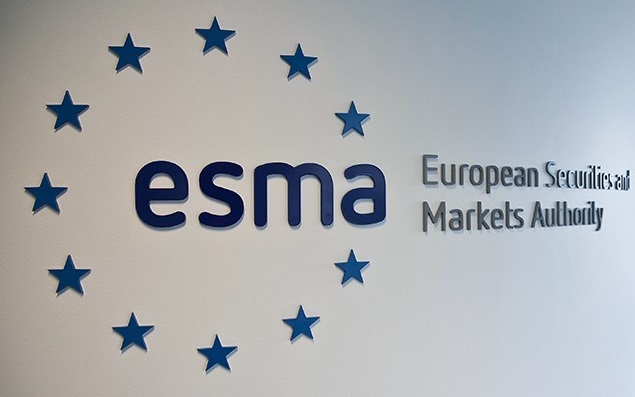Limitations on the Forex market (max. 1 leverage: 30) extended. ESMA, unbending
The European Securities and Markets Authority (ESMA) has decided to extend the product intervention on the Forex / CFD market by another 3 months. This means that changes originally made temporarily for the 90 period will in fact be valid for a year.
"Temporarily" only theoretically
The decision about the changes was made in the first half of last year, however, from 1 August 2018, ESMA regulations have been in force, which have regulated the European OTC retail market on many levels. A third extension of the temporary restrictions should not surprise anyone. Three institutions supervising the financial market in the EU, FCA (United Kingdom), BaFin(Germany) and AMF (France), officially approving the changes. Although the European regulator can extend the existing regulations indefinitely, these regulators want to permanently introduce them at the national level, just in case.
Extract from the ESMA statement:
"ESMA has carefully considered the need to extend existing intervention measures. The institution believes that there are still serious concerns about investor protection associated with offering CFD to retail customers. Therefore, ESMA agreed to extend the validity of the measures on 1 May 2019 on the same terms as the previous extension decision, which came into force on 1 February 2019. '
The guidelines cover their spectrum of European Forex / CFD brokers and specify:
- Offering maximum leverage in 1: 30 and 2: 1, which will also depend on the volatility of the underlying instrument,
- 1: 30 for major currency pairs,
- 1: 20 for non-major currency pairs, gold and major stock market indices,
- 1: 10 for non-gold goods and major stock market indices,
- 1: 5 for individual equity and other instruments not listed,
- 1: 2 for cryptocurrencies,
- introduction of mandatory protection against the creation of a negative balance on each account,
- unification of standards regarding risk warnings,
- uniform rules regarding the stop-out mechanism for each account.
ESMA restrictions do not pass the exam (?)
The House of Brokerage Houses expresses its disapproval indicates the outflow of EU clients to foreign brokers. In another communication, attention was also paid to the results of the report, which showed that the reduction of financial leverage did not translate into an improvement in the results of Polish traders (about it in a separate article HERE).
Another impression can be obtained by analyzing the statistics of clients of Polish brokerage houses, whose obligation to publish in the quarterly schedule was imposed by the Polish Financial Supervision Authority already in the 2016 year. The last statement looks extremely optimistic and shows that on FX and commodity instruments almost 50% records profit (Check the list HERE). However, these figures do not take into account traders who have fled beyond the borders of the EU in search of greater leverage.
Brokers from outside the European Union benefit from restrictions
Market data from recent months (we are talking about reports of mainly investment companies listed on the stock exchange) regarding investment companies are not very optimistic. Their volume is much lower than in the middle of the year. We could probably give here a few reasons for this, but it is undeniable that the regulations of the European Securities and Markets Authority have had the greatest impact on the market practically since August. An additional confirmation is the increase in turnover from competitors that were not affected by leverage restrictions. Therefore, it is not hard to talk about the contraction of a group of people investing on forex. We can rather notice their migration to brokers, offering old or "better" conditions. Recent months in the market, after the introduction of ESMA's product intervention, in many aspects have shown the lack of effectiveness of intervention. Weakened the market of domestic companies that can not overly compete with a more extensive offer of brokerage houses from abroad.
Be sure to read: Professional Client - Everything You Need to Know [FAQ]
New Zealand and Australia
For Polish brokers, undoubtedly it would be difficult to transfer the profession to Australia. This country is known for its large experience baggage when it comes to financial institutions related to the currency exchange market. In addition to well-developed and recognizable companies, they also have extensive regulations, where the main barrier for foreign brokerage houses is the high entry barrier. Obtaining an ASIC license is a cost of millions of dollars. Individual customers have a bit easier when it comes to investment accounts.
New Zealand does not enjoy outstanding trust among investment firms. We are not talking about undermining the competence of the regulator, but rather about the lack of popularity among investors. The main directions of escape are indicated by countries such as Australia and Switzerland. So what can attract brokerage houses to this place? Above all, low operating costs.
Big potential in Africa
There is a new trend among European brokers. More and more often, the eyes are directed to southern Africa. This market is so promising that in addition to the similar time zone, it provides promising conditions for the rapid development of brokerage. A large number of EU brokers have already applied for a license from the local FSCA regulatory authority. The vast majority of these brokers (despite their smaller market share) are trustworthy companies.
Without focusing too much on the pros and cons of regulation, and their impact on the emigration of customers and, above all, brokers, it is difficult to say how long this process will last. Most foreign markets with stable and clear forex regulations with institutions of trusted customers have a saturated industry of companies offering brokerage services. Nevertheless, having a headquarters there with expansion into European markets is still a real scenario.






















![Forex Club – Tax 9 – Settle tax on a foreign broker [Download the Application] Forex Club - Tax 9](https://forexclub.pl/wp-content/uploads/2024/02/Forex-Club-Podatek-9-184x120.jpg?v=1709046278)
![Trading View platform – solutions tailored to the needs of traders [Review] trading view review](https://forexclub.pl/wp-content/uploads/2024/03/trading-view-recenzja-184x120.jpg?v=1709558918)
![How to connect your FP Markets account to the Trading View platform [Guide] fp markets trading view](https://forexclub.pl/wp-content/uploads/2024/02/fp-markets-trading-view-184x120.jpg?v=1708677291)
![How to invest in ChatGPT and AI? Stocks and ETFs [Guide] how to invest in chatgpt and artificial intelligence](https://forexclub.pl/wp-content/uploads/2023/02/jak-inwestowac-w-chatgpt-i-sztuczna-inteligencje-184x120.jpg?v=1676364263)


![Izabela Górecka – “Success on the market depends not only on knowledge, but also on emotional stability” [Interview] Izabela Górecka - interview](https://forexclub.pl/wp-content/uploads/2024/04/Izabela-Gorecka-wywiad-184x120.jpg?v=1713870578)
![WeWork – the anatomy of the collapse of a company valued at $47 billion [WeWork, part II] wework bankruptcy story](https://forexclub.pl/wp-content/uploads/2024/04/wework-bankructwo-historia-184x120.jpg?v=1711729561)
![Adam Neumann – the man who screwed up Softbank [WeWork, part AND] adam neumann wework](https://forexclub.pl/wp-content/uploads/2024/04/adam-neumann-wework-184x120.jpg?v=1711728724)





![How to transfer shares to another brokerage office [Procedure description] how to transfer shares to another brokerage house](https://forexclub.pl/wp-content/uploads/2024/03/jak-przeniesc-akcje-do-innego-biura-maklerskiego-184x120.jpg?v=1709556924)
![The most common mistakes of a beginner trader - Mr Yogi [VIDEO] Scalping - The most common mistakes of a beginner trader - VIDEO](https://forexclub.pl/wp-content/uploads/2024/03/Scalping-Najczestsze-bledy-poczatkujacego-tradera-VIDEO-184x120.jpg?v=1711601376)
![Learning patience: No position is also a position - Mr Yogi [VIDEO] Scalping - Learning patience - No position is also a position - VIDEO](https://forexclub.pl/wp-content/uploads/2024/03/Scalping-Nauka-cierpliwosci-Brak-pozycji-to-tez-pozycja-VIDEO-184x120.jpg?v=1710999249)
![When to exit a position and how to minimize losses - Mr Yogi [VIDEO] Scalping - When to exit a position and how to minimize losses - VIDEO](https://forexclub.pl/wp-content/uploads/2024/03/Scalping-Kiedy-wyjsc-z-pozycji-i-jak-minimalizowac-straty-VIDEO-184x120.jpg?v=1710336731)





![Learning patience: No position is also a position - Mr Yogi [VIDEO] Scalping - Learning patience - No position is also a position - VIDEO](https://forexclub.pl/wp-content/uploads/2024/03/Scalping-Nauka-cierpliwosci-Brak-pozycji-to-tez-pozycja-VIDEO-300x200.jpg?v=1710999249)












